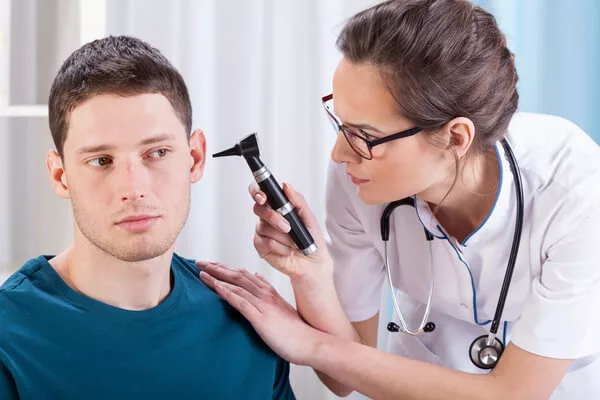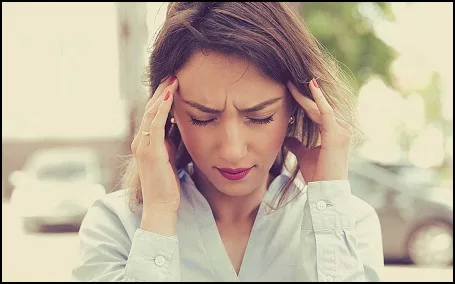
Highly likely. Going to a concert without ear protection can cause damage or not be very good for the ears, but this will recover over time.
If you go to many concerts in an unmodified state, then the chances are that your ears will repair themselves after around 6 months because of new cells made by the body to fix any damaged parts.
However, there is no guarantee that you’ll hear back at 100% volume what it was before you went deafened. However, constant exposure could lead to permanent damage and loss of hearing ability depending on how old you are when you’re exposed and how frequently you’re exposed.
How long the recovery will take depends on the damage; if it’s caused by a strong vibration from a built-up of loud noises, this could be worse.
Should you wear ear protection at a concert?
Ear protection should be worn at a concert because the sound produced by the speakers is very loud, causing damage to your ears if you’re not protected.
Depending on how close or far away you are from the speakers will determine the damage done to your ears because this determines how much louder it is when it reaches your ear drums.
It is advised that everyone should use some form of hearing protection, which would reduce the risk of being deafened for life or having temporary modifications in their ability to hear.
Why do my ears feel clogged after a concert?

After a concert or exposure to loud noises, your eardrums will feel painful, and you’ll feel ‘clogged’.
This is because the cells in your ear are very sensitive; exposure to loud music at a concert will cause damage. Why do your ears feel clogged after a concert?
Well, think about it like this: if you were to go underwater deep enough until it goes into your nose, mouth, and even your lungs – of course, you’d have the sensation of having water in them.
Then, once you bring yourself back up from underwater, of course, bubbles of air will escape out of your mouth because of the water, making it look like it’s foggy.
This is how it is for your ear drums when exposed to loud noises. The pressure from this has caused damage, and of course, the only way it will get repaired is by using more cells, which can take time, depending on your age and how frequently you’re exposed to loud noises.
How long will my ears recover?
How long your hearing ability returns depends on how much you have been affected and the frequency you experience these symptoms.
If it’s just one concert, then within a few hours or days, you should be able to hear again at 100% volume, but there are cases where people have reported that their hearing hasn’t returned after 2 weeks.
However, if constant (like going every day), it can take around 1-2 months to recover if you are older.
Why do I hear ringing in my ears after a concert?
When you get exposed to loud noises at a concert, of course, the eardrums get damaged, and this will make them more sensitive. This is due to the ear drum’s cells getting pushed together, making them push into each other.
If you were to stretch your arm then your muscles would hurt. That’s because they’re being stretched and compressed, and it makes all the tiny parts in your arm pain, and when it’s let go of, then it will return to normal.
So this is how it is for your ears after a concert or after being exposed to loud noises – it’s like your air-conditioner or heater running, but because there isn’t any noise coming out, you can only hear the fan rotation turning, the same thing with our ears, it becomes much more sensitive, and the tiny parts in your ears will become a pain.
This is also known as ‘Tinnitus’, but what many people don’t know is that this can be avoided by simply wearing some form of hearing protection, which would reduce the noise levels to under 85dB.
How long does tinnitus last on average?
How long tinnitus can last depends on the person; some people experience it for a few seconds and others have said theirs has lasted up to 2 weeks.
It also varies if it’s just once or twice at a concert, then it could disappear after a time. Still, if you’re constantly exposed to loud noises, this would cause permanent damage and increase the chances of 10x that your tinnitus being permanent.
Conclusions
Some treatments can help with your hearing loss, such as devices that you can put into your ear to hear better and rescue some lost sounds.
These seem more effective for people who have a loss in low-pitch sounds. If an explosion or gunshot wound has caused it, then there is a high possibility that these won’t work at all because they try to determine sound through vibrations, which doesn’t happen when you go deafened from something like lightning or blasts
. This type of treatment is usually used on people with serious injuries from war zones, though they’re not very common anymore because guns and other weapons, such as grenades, are being removed from war zones.
If you’re planning to go to a concert, please bring some form of hearing protection! It’s better for your wallet, health, and, most importantly, safety. So remember, never again say, “I’ll just be fine.”